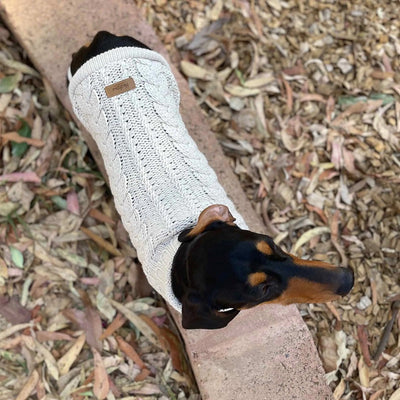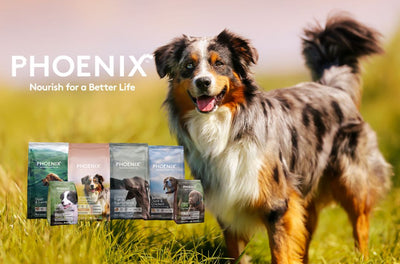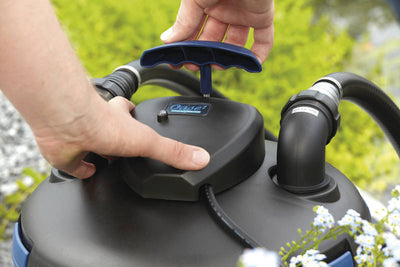
As a responsible pet owner, it's essential to be aware of potential dangers that can harm our furry friends. One such danger is xylitol, a popular sweetener found in many sugar-free products. While it can be a safe alternative for humans, xylitol can be deadly for dogs.
Xylitol is a natural sweetener derived from plants, and it's commonly used in sugar-free gum, mints, toothpaste, and even some peanut butter brands. it is sometimes refered to as, wood sugar, birch sugar, and birch bark extract. However, what many pet owners don't realise is that even a small amount of xylitol can have devastating consequences for their four-legged companions.
When a dog ingests xylitol, it causes a rapid release of insulin in their body, leading to a dangerous drop in blood sugar levels. This can result in symptoms such as vomiting, loss of coordination, seizures, and even liver failure. In some cases, it can be fatal if not treated promptly.
To keep your furry friend safe, it's crucial to read product labels carefully and avoid giving your dog anything containing xylitol. If you suspect your dog has ingested xylitol or is exhibiting any unusual symptoms, contact your veterinarian immediately. By staying informed and taking precautions, we can protect our pets from the potential dangers of xylitol.
Why xylitol is dangerous for dogs
Xylitol is a natural sweetener derived from plants, and it's commonly used in sugar-free gum, mints, toothpaste, and even some peanut butter brands. However, what many pet owners don't realise is that even a small amount of xylitol can have devastating consequences for their four-legged companions.
When a dog ingests xylitol, it causes a rapid release of insulin in their body, leading to a dangerous drop in blood sugar levels. This can result in symptoms such as vomiting, loss of coordination, seizures, and even liver failure. In some cases, it can be fatal if not treated promptly.
Xylitol is particularly dangerous for dogs because their bodies process it differently than humans. While humans can safely metabolise xylitol, dogs' bodies are unable to do so. As a result, xylitol accumulates in their system, causing severe health issues.
Symptoms of xylitol poisoning in dogs
It's crucial for pet owners to be able to recognise the symptoms of xylitol poisoning in dogs. The signs may vary depending on the amount of xylitol ingested and the size of the dog. Common symptoms include vomiting, loss of coordination, weakness, lethargy, seizures, and even collapse.
If you notice any of these symptoms in your dog, it's vital to act quickly. Xylitol poisoning can progress rapidly, and immediate medical attention is necessary to prevent further complications.
Immediate steps to take if your dog ingests xylitol
If you suspect that your dog has ingested xylitol, it's crucial to act fast. Time is of the essence when it comes to treating xylitol poisoning in dogs. Here are the immediate steps you should take:
1. Call your veterinarian: Contact your vet right away and inform them about the situation. They will provide guidance on what to do next and may ask you to bring your dog in for immediate treatment.
2. Do not induce vomiting: Unlike with other toxins, inducing vomiting is generally not recommended in cases of xylitol ingestion. It can exacerbate the drop in blood sugar levels and lead to further complications.
3. Monitor your dog's vital signs: Keep a close eye on your dog's breathing, heart rate, and overall condition. Note any changes or worsening symptoms to provide accurate information to your veterinarian.
Remember, time is critical in these situations. It's always better to err on the side of caution and seek professional help immediately.
Treatment options for xylitol poisoning in dogs
When it comes to treating xylitol poisoning in dogs, early intervention is key. The specific treatment will depend on the severity of the poisoning and the symptoms displayed by the dog. Here are some common treatment options:
1. Administration of intravenous fluids: To stabilise the dog's blood sugar levels and prevent dehydration, intravenous fluids may be administered.
2. Monitoring and management of blood glucose levels: Close monitoring of the dog's blood glucose levels is crucial. In severe cases, continuous glucose infusion or frequent blood glucose checks may be necessary.
3. Supportive care: Dogs with xylitol poisoning may require additional supportive care, such as anti-nausea medication, liver protectants, and medications to control seizures if necessary.
4. Hospitalisation: In severe cases, hospitalisation may be required for close monitoring and intensive treatment.
It's important to note that the prognosis for dogs with xylitol poisoning can vary depending on the amount of xylitol ingested and the promptness of treatment. Early detection and immediate veterinary care increase the chances of a positive outcome.
Foods and products that commonly contain xylitol
To prevent xylitol poisoning in dogs, it's crucial to be aware of the common foods and products that contain this sweetener. Some of the products that may contain xylitol include:
- Sugar-free gum and mints
- Sugar-free baked goods and candies
- Toothpaste and mouthwash
- Some peanut butter brands
- Some medications and supplements
Always read product labels carefully before giving any food or product to your dog. If you're unsure whether a product contains xylitol, it's best to err on the side of caution and avoid giving it to your furry friend.
How to prevent xylitol poisoning in dogs
Prevention is key when it comes to keeping your dog safe from xylitol poisoning. Here are some essential steps to take:
- Keep xylitol-containing products out of reach: Store all products containing xylitol in cabinets or areas that are inaccessible to your dog. Remember, dogs are curious creatures and can easily get into things they shouldn't.
- Dispose of used gum and candy properly: Dogs are notorious for finding discarded gum or candy on the ground. Always dispose of these items in a secure trash bin to prevent accidental ingestion.
- Educate yourself and others: Spread awareness about the dangers of xylitol to other pet owners. Share this information with friends, family, and fellow dog owners to ensure everyone knows how to keep their pets safe.
- Consider alternative sweeteners: If you enjoy baking homemade treats for your dog, opt for dog-friendly sweeteners such as honey or unsweetened applesauce. These natural alternatives are safe for dogs and can still add a touch of sweetness to their treats.
Alternatives to xylitol for pet owners
While xylitol may be off-limits for dogs, there are several safe and dog-friendly sweeteners available for pet owners. Here are a few alternatives to consider:
1. Honey: Honey is a natural sweetener that can be used sparingly in homemade dog treats. It's important to note that honey should be given in moderation due to its high sugar content.
2. Unsweetened applesauce: Unsweetened applesauce can be a great way to add moisture and natural sweetness to dog treats. Just make sure to check the label and choose a brand without added sugars.
3. Mashed bananas: Mashed bananas can serve as a healthy and natural sweetener in dog treats. They are also packed with vitamins and minerals, making them a nutritious addition to your dog's diet.
5. Use Treats Labelled for dogs: Only ever feed treats that are labeled as pet treats to your dog. Reputable dog treats will have an ingredients list with feeding instructions and guaranteed analyses on the packaging.
Remember, moderation is key when it comes to incorporating sweeteners into your dog's diet. Always consult with your veterinarian before making any significant changes to their diet.
Xylitol safety precautions for households with pets
If you have xylitol-containing products in your household, it's essential to take extra precautions to keep your pets safe. Here are some safety measures to consider:
- Securely store xylitol-containing products: Keep all products containing xylitol in a secure location that is inaccessible to your pets. Consider using childproof locks on cabinets or designated pet-free zones in your home.
- Read labels carefully: Before purchasing any new product, read the label thoroughly to check for the presence of xylitol. Even products that seem unlikely to contain xylitol may surprise you, so it's better to be safe than sorry.
- Inform household members and visitors: Make sure everyone in your household, as well as any visitors, is aware of the dangers of xylitol for pets. Educate them about the importance of keeping xylitol-containing products out of reach of your furry friends.
- Pet-proof your garbage bins: Dogs are known for their scavenging habits, so it's crucial to pet-proof your garbage bins. Use bins with secure lids or keep them in a closed cabinet to prevent your pets from accessing discarded xylitol-containing products.
The importance of spreading awareness about xylitol and dogs
Xylitol can be a deadly sweetener for dogs. Even a small amount can lead to severe health issues, including a dangerous drop in blood sugar levels and potential liver failure. As responsible pet owners, it's our duty to protect our furry friends from the dangers of xylitol.
By being aware of the foods and products that contain xylitol, recognizing the symptoms of xylitol poisoning, and taking immediate action if ingestion occurs, we can minimize the risks and ensure our pets' safety. Spreading awareness about xylitol and its dangers is crucial to help other pet owners keep their furry companions safe.
Remember, prevention is key. By taking the necessary precautions and opting for dog-friendly sweeteners, we can enjoy our favorite treats while keeping our dogs safe and healthy. Let's spread the word and make sure every pet owner knows about the dangers of xylitol. Our furry friends deserve nothing less than our utmost care and protection.
© weknowpets 2023





